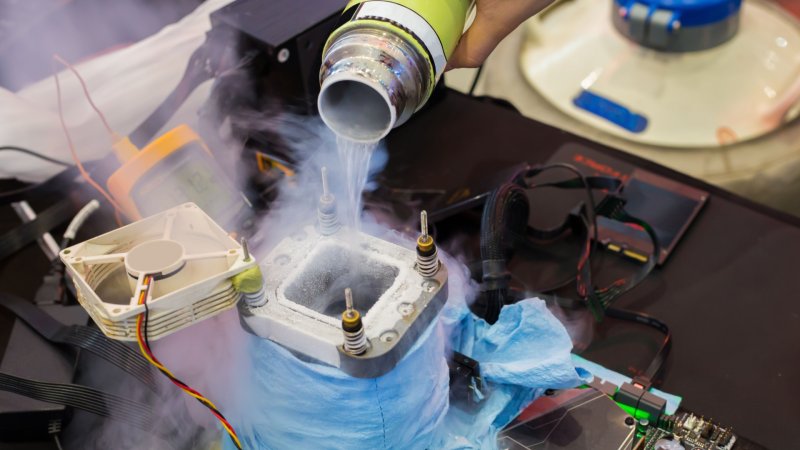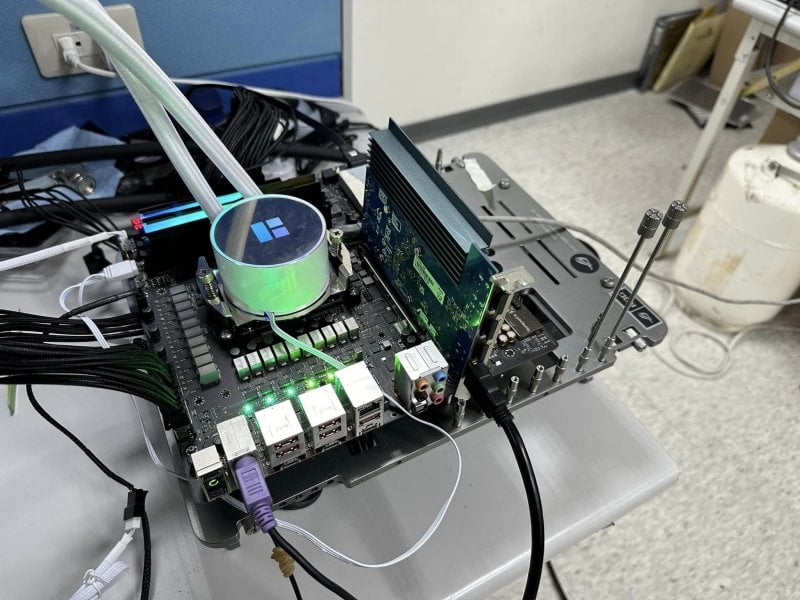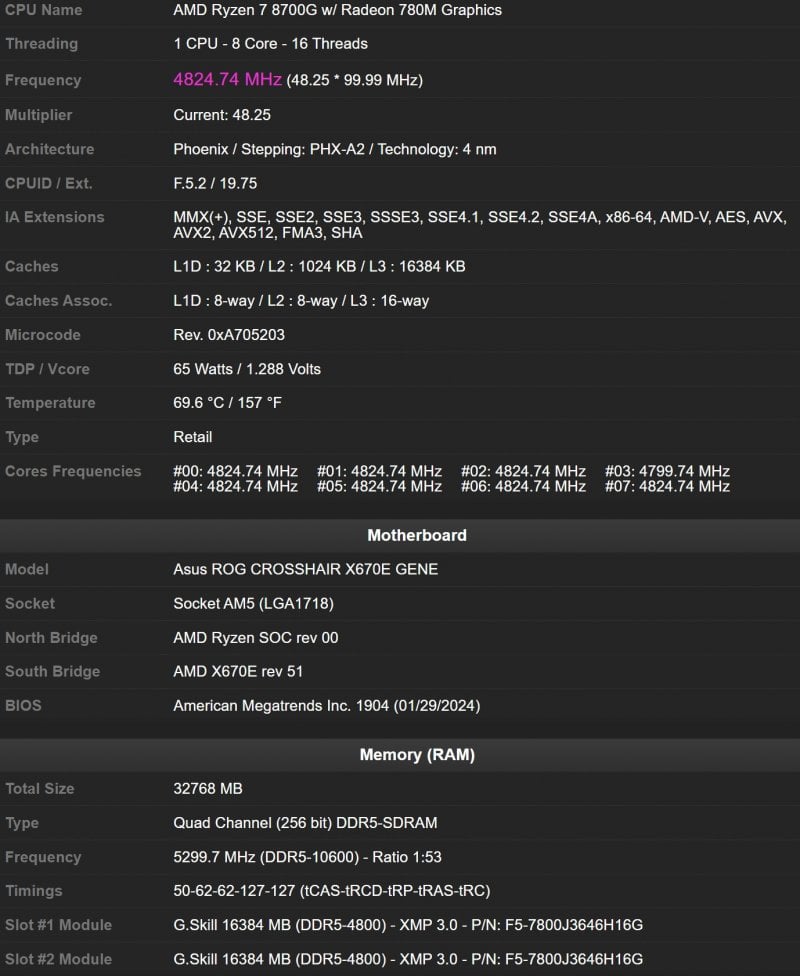The new AMD Ryzen 7 8700G APU immediately demonstrated an excellent aptitude for overclocking and the results that appeared online in this regard are more than encouraging.
Historically one of the most practiced actions to improve the performance of your PC is overclocking.
Overclocking is based on a simple principle: increase the operating frequency of a chip to improve its performance. This increase, however, brings with it a series of challenges that the user must respond to, such as the greater heat produced which will then be dissipated or the increased possibility of incurring system failures or instability.
Over the years, the PC market has responded in a structured way to the demand of the niche of users dedicated to this practice, producing a series of 360° solutions both for enthusiasts looking for a small performance improvement to maintain every day and for the most devoted users with systems dedicated specifically and solely to the most extreme overclocking, perhaps even managed with unconventional cooling systems such as dry ice or liquid nitrogen.
Overclocking for everyone
Overclocking has represented for a long time a very elitist activity and not within everyone's reach: in the early days there were no tools like those of today to speed up the application of changes and the necessary testing phases and it was almost always necessary to act via BIOS, obviously limiting the field of action to less technical users who might be scared by it.
For a few years however, thanks to the graphic evolution of the BIOS and the arrival of many programs to facilitate overclocking, this practice has gradually become more and more accessible to less technical users.
Today the overclocks most used by users they adjust frequencies and voltages of RAM memories and video cardswhile CPU overclocking is a practice that has (unfortunately) lost much of its appeal: a few years ago it was in fact possible to easily gain hundreds if not thousands of MHz (clearly having to be kept at bay with adequate dissipation systems), while today the processors on sale no longer allow very large increases as they are already heavily pushed to the factory limits.
RAM at full speed!
Speaking instead of the APU of the title, today's news is that a professional overclocker, Safedisk, has pushed a kit of DDR5 memories coupled to an AMD Ryzen 7 8700G APU to the remarkable speed of well 10600MHz.
In addition to the truly fantastic result for a “simple” APU, what is even more impressive after the initial surprise is discovering that this result has been achieved without having to use extreme cooling systems either for the APU or for the RAM memories.
This means that Safedisk has managed to push a kit consisting of 2 memory modules beyond 10000 MHz without the use of any help deriving from sub-zero temperatures, which are usually necessary to squeeze out the last and very important MHz.
This result, although not the highest achievable and certainly cannot boast the title of “world record”, still represents a truly fantastic result considering that it was achieved in air and is in any case the highest goal achieved not only by AMD Ryzen APUs 8000, but more generally by AMD AM5 processors.
#AMD #Ryzen #8700G #APU #monstrous #overclocking


